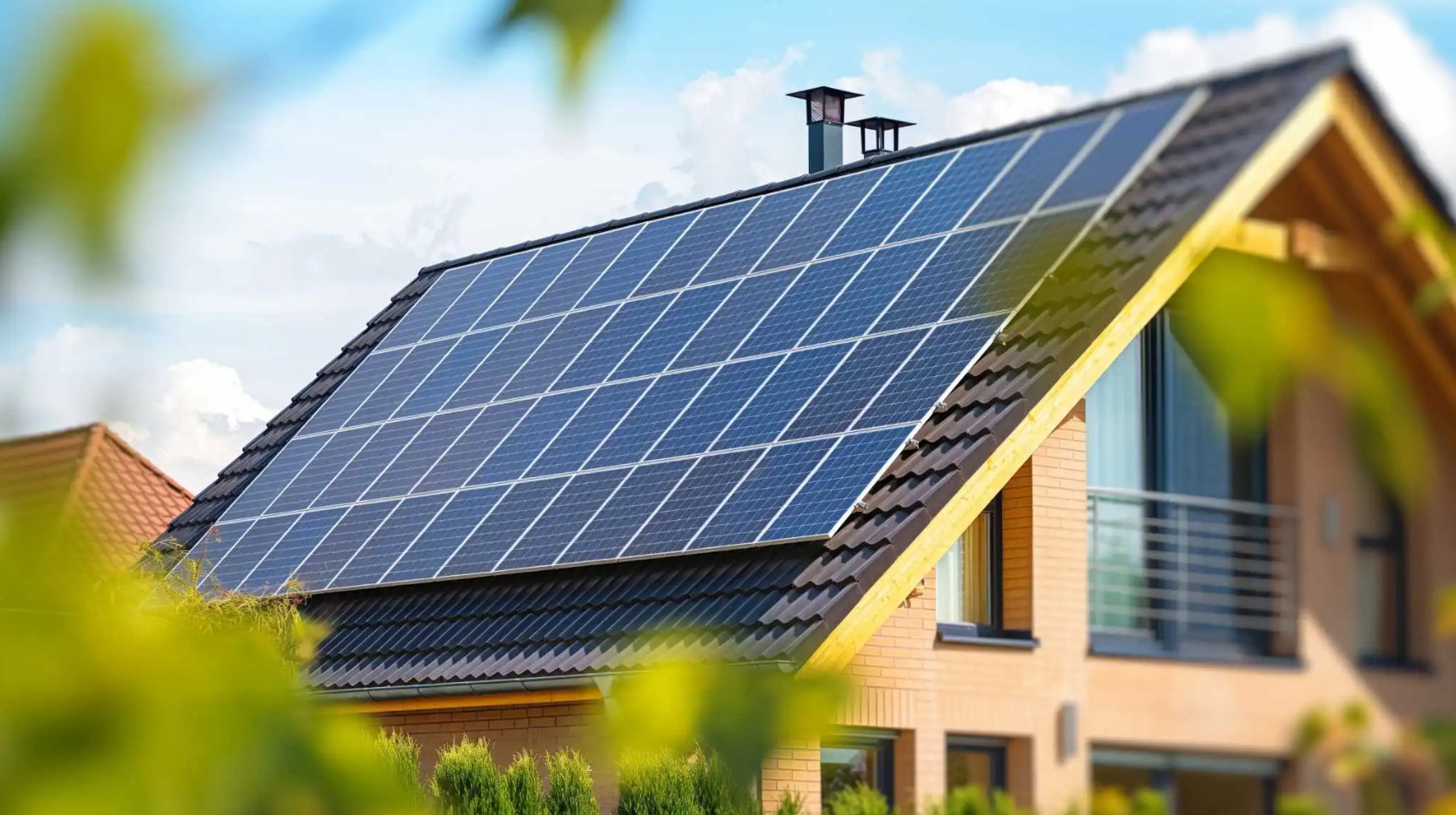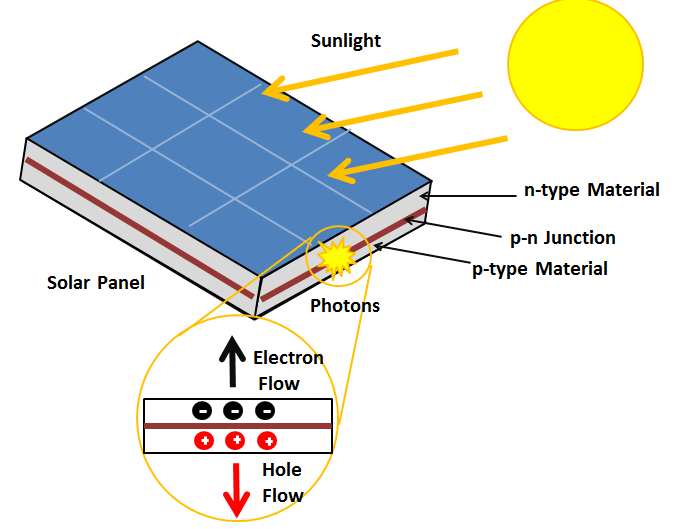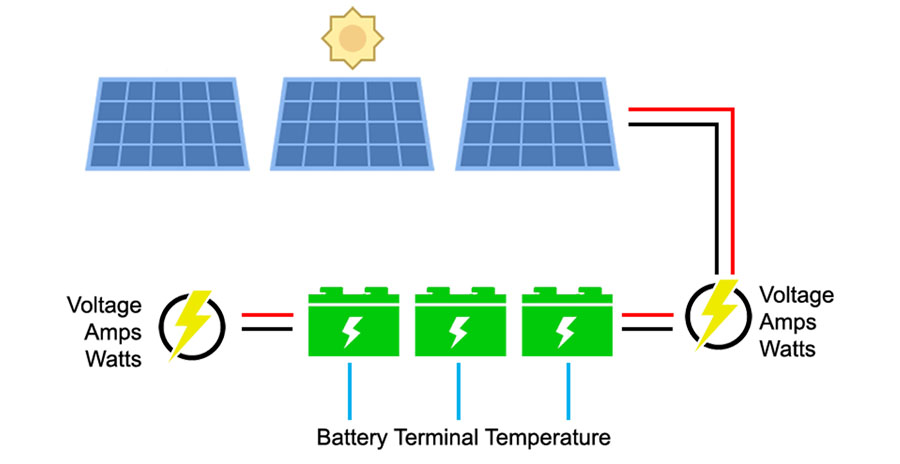- Published on
How PV Panels Works !
- Authors
- Name
- Soulaimane Yahya
- @soulaimaneyh

Photovoltaic (PV) panels work by converting sunlight into electricity through the photovoltaic effect.
How PV Panels Works !
1. Sunlight Hits the Solar Cell

The solar panel, typically made of silicon-based semiconductor materials, absorbs sunlight in the form of photons.
2. Photons Absorb by Semiconductor Material

When sunlight (photons) strikes the solar cell, the semiconductor material absorbs these photons, creating electron movement.
3. Electrons Get Excited and Knocked Loose
The energy from absorbed photons excites electrons, knocking them loose from the silicon atoms.
4. Electric Field Directs Electron Flow
Due to the internal electric field in the solar cell, the free electrons are directed to flow in one direction.
5. Electric Current is Generated
The movement of electrons creates an electric current, which is captured by conductive contacts in the panel.
6. Conductive Contacts Collect the Current
The conductive materials in the PV panel collect and transport the generated current.
7. Direct Current (DC) is Produced
The current produced is Direct Current (DC), which needs to be converted for home or business use.
8. Inverter Converts DC to AC for Use
An inverter is used to convert the DC electricity into Alternating Current (AC), which is the standard form of electricity used in homes.
9. PV Arrays Combine Multiple Panels
Multiple solar panels are combined into arrays to increase power generation.
10. Energy is Used or Stored

The produced electricity can either be used immediately or stored in batteries for later use.
In summary
- Solar panels convert sunlight to DC electricity
- Inverter converts DC electricity to AC
- Take electricity for home use
- Send excess electricity to grid
- Utility power is continuously provided at night and during the day when demand exceeds solar production
Sunlight → Solar Cell → Electrons → Current → Usable Electricity.